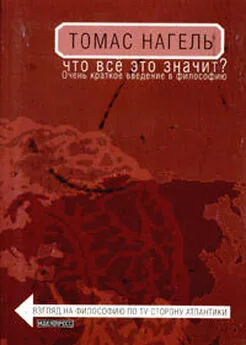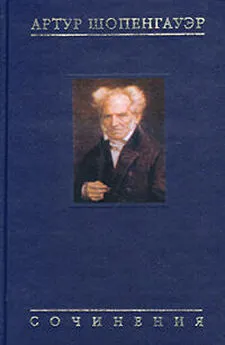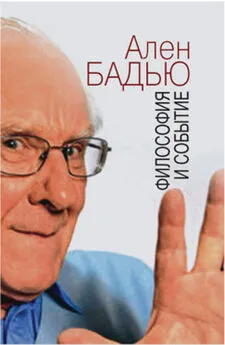Томас Нагель - Что всё это значит? Очень краткое введение в философию
- Название:Что всё это значит? Очень краткое введение в философию
- Автор:
- Жанр:
- Издательство:Идея-Пресс
- Год:2001
- Город:Москва
- ISBN:5-7333-0021-3
- Рейтинг:
- Избранное:Добавить в избранное
-
Отзывы:
-
Ваша оценка:
Томас Нагель - Что всё это значит? Очень краткое введение в философию краткое содержание
На свете существует множество замечательных книг в жанре введения в философию, содержащих подборки извлечений из произведений как великих мыслителей прошлого, так и современных философов. Эта небольшая книжка не может их заменить, но все же автор надеется, что она дает первое представление о философии, делая это с максимальной ясностью и простотой. Если, прочитав ее, вы решитесь взяться за следующую книгу по философии, то сами увидите, сколь многое еще можно сказать об этих проблемах вдобавок к сказанному в данном издании.
http://fb2.traumlibrary.net
Что всё это значит? Очень краткое введение в философию - читать онлайн бесплатно полную версию (весь текст целиком)
Интервал:
Закладка:
1. The Possibility of Altruism. Oxford University Press, 1970; пeреизд. Princeton University Press, 1978. Переведена на итальянский (1994) и немецкий (1998) языки.
2. Mortal Questions. Cambridge University Press, 1979. Переведена на испанский (1981), французский (1983), немецкий (1984, переизд. 1996); итальянский (1986); японский (1989); румынский (1996); польский (1997); датский (1997); македонский (1998); китайский (в печати) языки.
3. The View from Nowhere. Oxford University Press, 1986. Переведена на итальянский (1988); немецкий (1992); французский (1993); шведский (1993); испанский (1996); польский (1997); корейский (1998); греческий (в печати) языки.
4. What Does It All Mean? A Very Short Introduction to Philosophy. Oxford University Press, 1987. Переведена на греческий (1989); итальянский (1989); немецкий (1990); голландский (1990); датский (1991); шведский (1991); словацкий (1991); французский (1993); китайский (1993); японский (1993); польский (1993); румынский (1994); словенский (1995); испанский (1996); португальский (1996); корейский (1999) языки и на иврит (1994).
5. Equality and Partiality. Oxford University Press, 1991 Переведена на итальянский (1993); французский (1994); немецкий (1994); испанский (1996) языки.
6. Die Grenzen der Objektivitat. (сборник переводов) Stuttgart, Reclam, 1991.
7. Other Minds: Critical Essays, 1969–1994. Oxford University Press, 1995. Переведена на испанский (в печати) язык.
8. The Last Word. Oxford University Press, 1997. Переведена на румынский (1998); португальский (1999); итальянский (1999); немецкий (1999); испанский (в печати); голландский (в печати); польский (в печати); венгерский (в печати) языки.
II. Сборники статей
1. Philosophy, Morality, and International Affairs (with Virginia Held and Sidney Morgenbesser). Oxford University Press, 1974.
2. The Rights and Wrongs of Abortion (with Marshall Cohen and Thomas Scanlon). Princeton University Press, 1974.
3. War and Moral Responsibility (with Marshall Cohen and Thomas Scanlon). Princeton University Press, 1974.
4. Equality and Preferential Treatment (with Marshall Cohen and Thomas Scanlon). Princeton University Press, 1977.
5. Marx, Justice, and History (with Marshall Cohen and Thomas Scanlon), Princeton University Press, 1980.
6. Medicine and Moral Philosophy (with Marshall Cohen and Thomas Scanlon), Princeton University Press, 1981.
(переиздания и переводы не указаны)
1. Hobbes's Concept of Obligation // Philosophical Review, 1959, pp. 68–83;
2. Dreaming // Analysis, 1959, pp. 112–116;
3. Physicalism // Philosophical Review, 1965, pp. 339–356;
4. Sexual Perversion // Journal of Philosophy, 1969, pp. 5–17;
5. Linguistics and Epistemology // Sidney Hook (ed.). Language and Philosophy. New York University Press, 1969, pp. 171–182;
6. The Boundaries of Inner Space // Journal of Philosophy, 1969, pp. 452–458;
7. Death // Nous, 1970, pp. 73–80;
8. Armstrong on the Mind // Philosophical Review, 1970, pp. 394–403 (a discussion review of A Materialist Theory of the Mind by D.M.Armstrong);
9. Wittgenstein // The Village Voice, Feb. 11, 1971;
10. Brain Bisection and the Unity of Consciousness // Synthese, 1971, pp. 396–413;
11. The Absurd // Journal of Philosophy, 1971, pp. 716–727;
12. War and Massacre // Philosophy & Public Affairs, 1972, № 1, pp. 123–144;
13. Reason and National Goals // Science, 1972, pp. 766–770;
14. Aristotle on Eudaimonia // Phronesis; 1972, pp. 252–259;
15. Rawls on Justice // Philosophical Review, 1973, pp. 220–234 (a discussion review of A Theory of Justice by John Rawls)
16. Equal Treatment and Compensatory Discrimination // Philosophy & Public Affairs, 1973, № 2, pp. 348–362;
17. Freud’s Anthropomorphism // Richard Wollheim (ed.). Freud. New York, Doubleday, 1974, pp. 11–24;
18. What Is it Like to Be a Bat? // Philosophical Review, 1974, pp. 435–450;
19. Altruism and Economics // E. S. Phelps (ed.). Altruism, Morality, and Economic Theory. New York, Russell Sage Foundation, 1975, pp. 63–67;
20. Libertarianism without Foundations // Yale Law Journal, 1975, № 85, pp. 136–149 (a discussion review of Anarchy, State, and Utopia by Robert Nozick);
21. Moral Luck // Proceedings of the Aristotelian Society Supplementary Volume 50, 1976, pp. 137–155;
22. The Fragmentation of Value // Daniel Callahan and H. Tristram Engelhardt, Jr. (eds.). Knowledge, Value and Belief. Hastingson-Hudson, N.Y., Institute of Society, Ethics and the Life Sciences, 1977, pp. 279–294;
23. Poverty and Food: Why Charity is Not Enough // Peter G. Brown and Henry Shue (eds.). Food Policy, New York, The Free Press, 1977, pp. 54–62;
24. Ethics as an Autonomous Theoretical Subject // Gunther S. Stent (ed.). Morality as a Biological Phenomenon, Berlin, Dahlem Konferenzen, 1978, pp. 221–232;
25. The Justification of Equality // Critica (Mexico), 1978, pp. 3–27;
26. Ruthlessness in Public Life // Stuart Hampshire (ed.). Public and Private Morality, Cambridge University Press, 1978, pp. 75–91;
27. The Meaning of Equality // Washington University Law Quarterly, 1979, pp. 25–31;
28. The Limits of Objectivity // Sterling M. McMurrin (ed.). The Tanner Lectures on Human Values, Vol. I, University of Utah Press and Cambridge University Press, 1980, pp. 75–139;
29. Tactical Nuclear Weapons and the Ethics of Conflict // Parameters: Journal of the U.S. Army War College, 1981, pp. 327–328;
30. The Supreme Court and Political Philosophy // New York University Law Review, 19.81, № 56, pp. 519–524;
31. A Month in the Country // The New Republic, March 14,1983;
32. The Objective Self // Carl Ginet and Sydney Shoemaker (eds.). Knowledge and Mind, Oxford University Press, 1983, pp. 211–232;
33. Caste Struggle // The New Republic, January 23, 1984;
34. Bemerkungen zu Bernard Williams' Beitrag // Eva Schaper and Wilhelm Vossenkuhl (eds.). Bedingungen der Moglichkeit, Stuttgart, Klett-Cotta, 1984, pp. 262–266;
35. Public Support for the Arts // Columbia Journal of Art and the Law, 1985, № 9, pp. 236–239;
36. No Way Out // The Philosophical Forum, vol. XVIII, No. 2–3, 1986–1987, pp. 171–176;
37. Moral Conflict and Political Legitimacy // Philosophy & Public Affairs, summer 1987, pp. 215–240;
38. Libertad у Objetividad // E. Villanueva (ed.). Secundo Simposio Internacional de Filosofia, Vol. 2, Universidad Nacional Autonoma de Mexico, 1987;
39. The Foundations of Impartiality // N. Fotion and D. Seanor (eds.). Hare and Critics, Oxford University Press, 1988, pp. 101–112;
40. What Makes a Political Theory Utopian? // Social Research, 1989, № 56, pp. 903–920;
41. Freedom Within Bounds // Times Literary Supplement, Feb. 16–22, 1990, p. 169;
42. Coscienza e realta oggetiva // G. Giorello & P. Strata, (eds.). L'Automa Spirituale: Menti, Cervelli e Computer. Rome, Laterza, 1991, pp. 31–37;
43. What Is the Mind-body Problem? and Summary // Experimental and Theoretical Studies of Consciousness, Ciba Foundation Symposium 174, Chichester: John Wiley & Sons, 1993, pp. 1–13, 304–306;
44. La valeur de Pinviolabilite // Revue de Metaphysique et de Morale, 1994, № 2, pp. 149–166;
45. Consciousness and Objective Reality // R. Warner and T. Szubka (eds.). The Mind-Body Problem, Blackwell, 1994;
46. Moral Epistemology // R. E. Bulger, E. M. Bobby, and H. V. Fineberg (eds.). Society's Choices: Social and Ethical Decision Making in Biomedicine. Washington, National Academy Press, 1995, pp. 201–214;
47. Personal Rights and Public Space // Philosophy & Public Affairs, vol. 24, № 2, 1995, pp. 83–107;
48. Universality and the Reflective Self // Onora O'Neill (ed.). The Sources of Normativity, Cambridge University Press, 1996, pp. 200–209;
49. Justice and Nature // Oxford Journal of Legal Studies, vol. 17, № 2, 1997, pp. 303–321;
50. Reductionism and Antireductionism // The Limits of Reductionlsm in Biology, Novartis Symposium 213, John Wiley & Sons, 1998, pp. 3–10;
51. Concealment and Exposure // Philosophy & Public Affairs, vol. 27, № 1, 1998, pp. 3–30;
52. Conceiving the Impossible and the Mind-Body Problem // Philosophy, vol. 73, № 285, 1998, pp. 337–352;
53. The Shredding of Public Privacy // Times Literary Supplement, August 14, 1998;
54. Dialogue with Michael Kinsley on «Politicians and Privacy» // Slate, Sept. 22–Oct. 7, 1998;
55. Davidson's New Cogito // Lewis Hahn, ed. The Philosophy of Donald Davidson. Chicago: Open Court, 1999, pp. 195–206.
1. Alan R. White. Attention // Philosophical Review, 1967, pp. 406–409;
2. D. С Dennett. Content and Consciousness // Journal of Philosophy, 1972, pp. 220–224;
3. Brian O'Shaughnessy. The Will: a Dual-Aspect Theory // Times Literary Supplement, March 27, 1981;
4. Bernard Williams. Moral Luck // Times Literary Supplement, May 7, 1982;
5. R. M. Hare. Moral Thinking // London Review of Books, July 1–14, 1982;
6. Colin McGinn. The Subjective View // Times Literary Supplement, November 18, 1983;
7. Stuart Hampshire. Morality and Conflict // New York Times, April 8, 1984;
8. Thomas Schelling. Choice and Consequence // The New Republic, August 27, 1984;
9. Bernard Williams. Ethics and the Limits of Philosophy // Journal of Philosophy, 1986, pp. 351–360;
10. Ronald Dworkin. Law's Empire // London Review of Books, September 18, 1986;
11. J. Z. Young. Philosophy and the Brain, and Galen Strawson. Freedom and Belief // London Review of Books, October 1, 1987;
12. Alasdair MacIntyre. Whose Justice? Which Rationality? // Times Literary Supplement, July 8–14, 1988;
13. David Pears. The False Prison: A Study of the Development of Wittgenstein’s Philosophy, Vol. II // London Review of Books May 18, 1989;
14. Edna and Avishai Margalit, eds. Isaiah Berlin: A Celebration // London Review of Books, July 25, 1991;
15. Daniel C. Dennett. Consciousness Explained // The Wall Street Journal, November 7, 1991;
16. John R. Searle. The Rediscovery of the Mind // New York Review of Books, March 4, 1993;
17. Richard Wollheim. The Mind and Its Depths, and Paul Robinson. Freud and His Critics // New York Review of Books, May 12, 1994;
18. Joseph Raz. Ethics in the Public Domain: Essays in the Morality of Law and Politics // London Review of Books, September 22, 1994;
19. Willard Gaylin and Bruce Jennings. The Perversion of Autonomy // New York Times, September 8, 1996;
20. Richard Rorty. Truth and Progress: Philosophical Papers, vol. 3 // Times Literary Supplement, August 28, 1998;
21. Alan Sokal and Jean Bricmont. Fashionable Nonsense: Postmodern Philosophers Abuse of Science // The New Republic, October 12, 1998;
22. Т. М. Scanlon. What We Owe to Each Other // London Review of Books, February 4, 1999;
Читать дальшеИнтервал:
Закладка:







